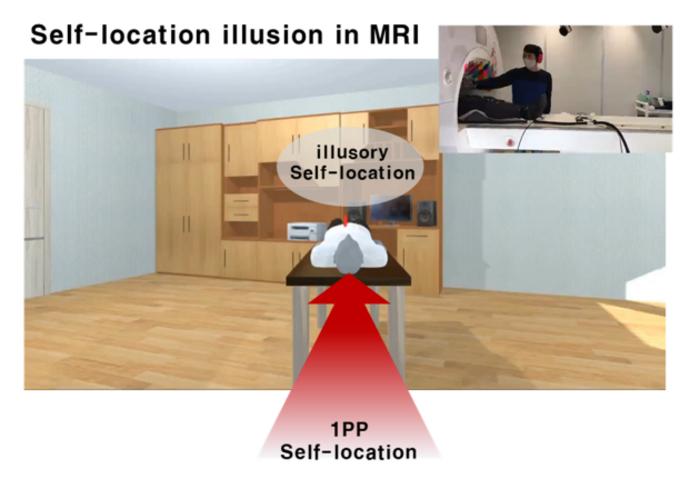In the depths of the human brain, a complex network of cells acts as a biological GPS, allowing us to navigate the world and remember events in space.
Dr. Hyuk-June Moon from the Korea Institute of Science and Technology (KIST) and Prof. Olaf Blanke’s team at the Swiss Federal Institute of Technology Lausanne (EPFL) have taken a groundbreaking step in understanding how these GPS cells respond to illusory changes in self-location.
By combining MRI-compatible virtual reality technology with multisensory bodily stimulation, the researchers induced self-location illusions in participants while observing their brain activity. This innovative approach allowed them to study the response of grid cells—a key component of the brain’s GPS system—without the need for invasive electrodes.
The results were striking: the team demonstrated, for the first time, that purely cognitive changes in self-location, induced by multisensory bodily stimulation, elicit corresponding activities in human grid cells. This discovery sheds light on how our brain’s GPS coordinates respond not only to our physical location but also to location information based on various cognitive activities and experiences.
Implications for Diagnosing and Treating Hallucinatory Symptoms
The findings of this study have far-reaching implications for the diagnosis and treatment of mental and neurological diseases that cause illusory symptoms, such as out-of-body experiences. By providing a means to objectively diagnose these symptoms through brain image analysis, the research opens up new possibilities for developing targeted, non-invasive brain stimulation treatments.
Dr. Moon emphasized the novelty of their approach, stating, “Unlike previous human grid cell studies, which have relied on changes in visual environmental cues from a first-person perspective, we have newly suggested a key research element of integrating multisensory bodily signals.”
The team plans to continue their international collaborative research to further unravel the brain mechanisms underlying illusions caused by various mental and neurological diseases. With this knowledge, they hope to develop more effective treatments that can alleviate the distressing symptoms experienced by patients.
As our understanding of the brain’s GPS system deepens, the potential for harnessing this knowledge to improve mental health and well-being grows. The groundbreaking work of Dr. Moon, Prof. Blanke, and their teams brings us one step closer to unraveling the mysteries of the human brain and developing innovative solutions for those struggling with illusory symptoms.


